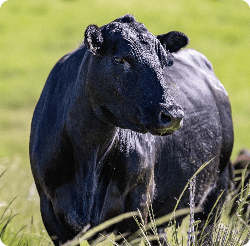The decision to lease or buy a bull is a critical one for any cattle rancher. While both options have their advantages and disadvantages, understanding the associated costs and benefits is essential for making an informed decision.
Understanding the Costs of Leasing a Bull
The cost of leasing a bull can vary significantly depending on several factors. The quality of the bull will have a huge impact on cost, with genetically prized sires commanding higher fees. Superior genetics, good health and high fertility are in high demand and here it is often true that you get what you pay for.
The length of the lease and the number of cows the bull is expected to breed will also have an influence on the price. Shorter leases may have lower initial costs, but may offer less value for money if you then need additional agreements throughout the breeding season.
Other factors like location will also play a role – with regional availability and demand of bulls driving prices – while the reputation of the bull’s owner, plus any additional concerns such as transport or insurance, all impact the final price.
Common Bull Lease Structures
There are several common lease structures used in the cattle industry:
- Fixed-Fee Lease: This is a straightforward lease where a fixed fee is charged for the entire lease period, regardless of the number of cows bred.
- Per-Cow Lease: In this structure, a fee is charged for each cow bred successfully. This can be advantageous for producers with smaller herds or those who are uncertain about the number of cows they will breed.
- Combination Lease: This type of lease combines fixed-fee and per-cow components. A fixed fee is charged upfront, and an additional fee is charged for each cow bred.
Additional Considerations for Leasing
In addition to the direct lease costs, there are other factors to consider when leasing a bull if they are not included as part of the agreement:
- Transportation Costs: The bull will need to be transported to and back from your farm, is this included as part of the service?
- Insurance: It is important to have adequate insurance coverage for the leased bull to protect against potential losses due to injury, illness, or death.
- Veterinary Care: The lessee may be responsible for providing routine veterinary care, such as vaccinations and deworming.
The Costs of Buying a Bull
Buying a bull on the other hand has its own considerations, including the commitment to ongoing costs. The purchase price will be the largest upfront fee and will vary greatly according to the bull’s age, health and genetics. Bulls with superior traits prized among breeders can be extremely valuable and so can require large capital outlays.
In the same way that the age of the bull will impact the purchase price, depreciation of your new asset should be considered because as it ages its value will decrease. This is particularly relevant for older bulls.
Feeding and housing costs will vary according to its breed, size and nutritional requirements but should be considered as ongoing costs, alongside routine veterinary care, such as vaccinations, deworming, and breeding soundness exams.
Transportation fees will need to be considered to get the bull to your farm.
Leasing vs. Buying a Bull: Which is Right for You?
The decision to lease or buy a bull depends on various factors, including:
- Herd Size: For smaller herds, leasing may be a more cost-effective option.
- Financial Resources: If you have the financial resources to purchase a high-quality bull, buying may be a better long-term investment.
- Desired Genetics: Leasing can provide access to superior genetics without the significant upfront cost of purchasing a high-quality bull.
- Risk Tolerance: Leasing can mitigate some of the risks associated with bull ownership, such as health issues and declining fertility.
The decision to lease or buy a bull is a complex one with significant financial implications. By carefully considering the costs and benefits of each option, cattle producers can make informed decisions that will benefit their operations. Ultimately, the best choice will depend on the specific needs and goals of the individual producer.
If you’re weighing up whether to purchase or lease an angus bull, talk to our team and we can take you through some of the advantages of each.

